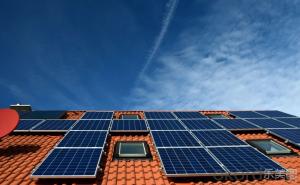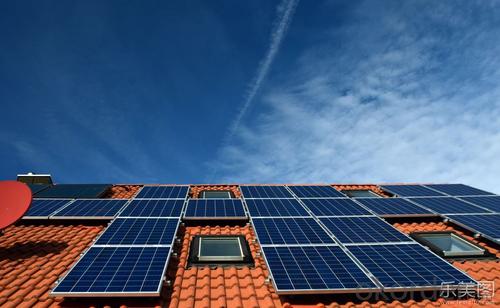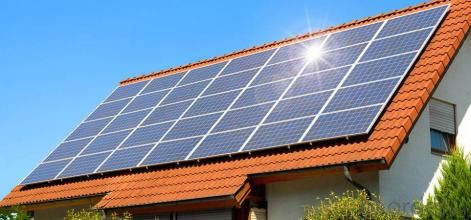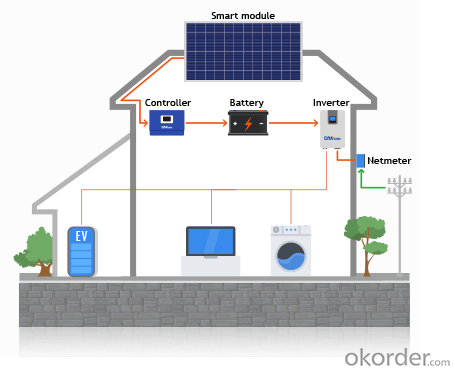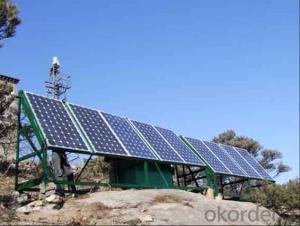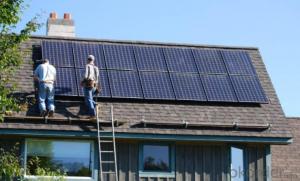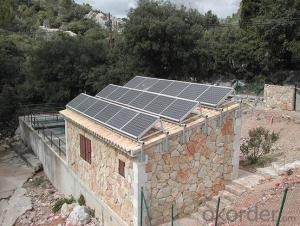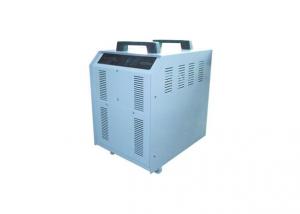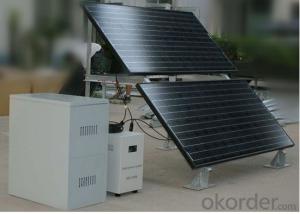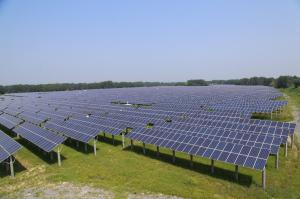10kw Solar Off-Grid Power System for Home - Solar Energy Systems Prices
- Loading Port:
- China main port
- Payment Terms:
- TT OR LC
- Min Order Qty:
- 1 set
- Supply Capability:
- 500 set/month
OKorder Service Pledge
OKorder Financial Service
You Might Also Like
Specification
1. Technical parameters of 10kw Solar off- grid Power System for home
- Solar panels
Power(Pmax): 320 Wp
Dimension: 1640x992x40 mm
Working Voltage(Voc): 39.7V
Working Current(Imp):9.32A
Weight: 20 kg
- PV Inverter with controller
Efficiency: >85%
Pure sine wave
AC 220V 50/60Hz output
Working Temp: 0℃~40℃
Battery overvoltage protection,undervoltage protection,overload protection,short circuit protection, overtemperature protection,etc.
580*290*675mm 77.5KG
-Mounting Bracket
Flat roof or Ground: Galvanized steel type;
Tile roof: Aluminium type
Wind Load Resistanc: 45m/s
Snow Load: 2kN/m2
- GEL Battery
12V180Ah
522*240*225mm 56KG
-DC Cables
PV1-F
TUV/UL certificates
2. Product images
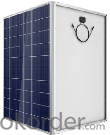
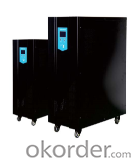



3. Product list
| No. | Item |
| 1 | Solar Panels |
| 2 | PV Inverter with controller built-in |
| 3 | Controller |
| 4 | Mounting racks |
| 5 | DC Cables |
| 6 | AC Cables |
| 7 | MC4 Connectors |
| 8 | GEL Battery |
| 9 | Combiner Box |
| 10 | Distribution box |
4. Remark
-In rainy days, the battery can support 2000W load work 24hours.
-The maximum power load should not exceed 8.5KW (including inductive load impact: such as refrigerators, air conditioners, washing machines, etc. with motor load).
-The battery can be fully charged in 5-6hours under STC sunshine condition.
- Q: Can solar energy systems be used in areas with limited access to solar energy installation services?
- Yes, solar energy systems can still be used in areas with limited access to solar energy installation services. In such cases, individuals or communities can opt for DIY solar panel installations or seek assistance from local technicians who have basic knowledge and skills in solar energy systems. Additionally, advancements in technology have made solar panels more accessible and affordable, allowing for easier installation and maintenance, even in remote areas.
- Q: Can solar energy systems be used for powering residential or commercial air conditioning systems?
- Yes, solar energy systems can be used for powering residential or commercial air conditioning systems. Solar energy can be harnessed through the use of solar panels or solar thermal systems, and this energy can be converted into electricity to power air conditioning units. Solar panels work by capturing sunlight and converting it into direct current (DC) electricity, which can then be converted into alternating current (AC) electricity using an inverter. This AC electricity can be used to power various appliances, including air conditioning systems. Additionally, solar thermal systems can use the sun's heat to directly power air conditioning units by heating a fluid, such as water or refrigerant, which can then be used to cool the air. Solar energy systems for air conditioning can help reduce electricity bills and carbon emissions, making them a sustainable and cost-effective option for residential and commercial buildings.
- Q: Can solar panels be installed on carports or parking structures?
- Yes, solar panels can be installed on carports or parking structures. This is known as solar carports, which utilize the space on top of carports or parking structures to generate solar energy. This not only provides shade for parked vehicles but also allows for the production of clean and renewable energy.
- Q: Can a solar energy system be installed on a sports arena or stadium?
- Yes, a solar energy system can be installed on a sports arena or stadium. In fact, many stadiums around the world have already implemented solar panels to generate clean and renewable energy. These systems can be installed on rooftops, parking lots, or even integrated into the design of the stadium itself. Not only does this help reduce the carbon footprint of the facility, but it also helps offset energy costs and promotes sustainability in the sports industry.
- Q: Can a solar energy system be integrated with an existing electrical system?
- Yes, a solar energy system can be integrated with an existing electrical system. In fact, it is quite common for people to install solar panels on their homes or businesses and connect them to their existing electrical systems. This integration typically involves the installation of an inverter, which converts the DC power generated by the solar panels into AC power that can be used to power appliances and electrical devices. The inverter is then connected to the existing electrical system, allowing the solar energy system to supplement or even replace the electricity provided by the grid. This integration allows for the efficient and sustainable use of solar energy while still maintaining the ability to draw electricity from the grid when needed. It also enables the possibility of net metering, where excess electricity generated by the solar panels can be fed back into the grid for credit or compensation. With proper planning and installation, integrating a solar energy system with an existing electrical system can significantly reduce energy costs, decrease reliance on fossil fuels, and contribute to a cleaner and more sustainable energy future.
- Q: Can solar energy systems be used for desalination of water?
- Yes, solar energy systems can be used for desalination of water. Solar-powered desalination systems use solar energy to power the desalination process, typically through the use of photovoltaic (PV) panels or solar thermal collectors. These systems can convert seawater or brackish water into fresh water by harnessing the sun's energy to heat, evaporate, and condense the water, leaving behind the salt and other impurities. Solar desalination offers a sustainable and environmentally friendly solution to address water scarcity in areas with abundant sunlight.
- Q: Are solar panels weather-resistant?
- Yes, solar panels are weather-resistant. They are designed to withstand various weather conditions including rain, snow, hail, and high winds. Solar panels are typically made of durable materials such as tempered glass and aluminum frames which are built to endure outdoor exposure. They are also tested and certified to meet industry standards for weather resistance. While extreme weather events can potentially cause damage to solar panels, they are generally built to withstand typical weather conditions and can continue to generate electricity even in inclement weather.
- Q: Can a solar energy system be integrated with energy storage systems?
- Indeed, the integration of energy storage systems with solar energy systems is possible. This integration is gaining popularity and significance within the renewable energy industry. Energy storage systems, like batteries, offer the capability to store surplus energy produced by solar panels for later use, especially during times of low solar radiation or high energy demand. Consequently, this effectively addresses the intermittent nature of solar energy generation and ensures a consistent and reliable power supply. Combining solar energy systems with energy storage allows users to decrease their dependence on the traditional power grid, increase the consumption of solar energy, and even attain complete energy independence in certain cases. Furthermore, this integration plays a vital role in advancing sustainable and resilient energy systems. It facilitates the integration of renewable energy sources into the power grid and smoothens out fluctuations in energy supply and demand.
- Q: Can solar energy systems be used in agricultural settings?
- Yes, solar energy systems can definitely be used in agricultural settings. In fact, the use of solar energy in agriculture has been gaining popularity in recent years. Solar panels can be installed on rooftops or as ground-mounted systems in agricultural fields to generate clean and renewable electricity. There are several ways in which solar energy can be utilized in agricultural settings. One common application is to power irrigation systems. Solar-powered water pumps can efficiently draw water from wells or other water sources and distribute it for irrigation purposes. This helps farmers reduce their dependence on fossil fuel-powered pumps and lowers their overall energy costs. Solar energy can also be used to power electric fences, lighting systems, and ventilation systems in livestock operations. These systems help improve the conditions for animals, enhance productivity, and reduce the environmental impact of traditional energy sources. Additionally, solar energy can be utilized for crop drying and processing. Solar dryers can be used to remove moisture from crops, reducing the risk of spoilage and improving their shelf life. Solar-powered processing equipment, such as grain mills and oil presses, can also be employed to enhance the efficiency and sustainability of agricultural operations. Moreover, solar energy systems can provide a reliable source of electricity to remote agricultural areas that are not connected to the grid. This enables farmers to access modern technologies and improve their productivity and income. Overall, the integration of solar energy systems in agricultural settings offers numerous benefits. It reduces greenhouse gas emissions, decreases reliance on fossil fuels, lowers energy costs, improves efficiency, and enhances the sustainability of agricultural practices. Therefore, solar energy is a viable and promising option for powering various agricultural activities.
- Q: How do solar energy systems contribute to reducing electricity bills?
- Solar energy systems contribute to reducing electricity bills by generating electricity from the sun's energy, which is free and abundant. By harnessing this renewable source of energy, homeowners and businesses can offset their reliance on traditional electricity grids, resulting in lower consumption from utility companies and ultimately reducing their electricity bills. Additionally, excess electricity generated by solar panels during peak sunlight hours can be fed back into the grid, earning credits or payments that further offset the costs of electricity bills.
Send your message to us
10kw Solar Off-Grid Power System for Home - Solar Energy Systems Prices
- Loading Port:
- China main port
- Payment Terms:
- TT OR LC
- Min Order Qty:
- 1 set
- Supply Capability:
- 500 set/month
OKorder Service Pledge
OKorder Financial Service
Similar products
Hot products
Hot Searches
Related keywords
